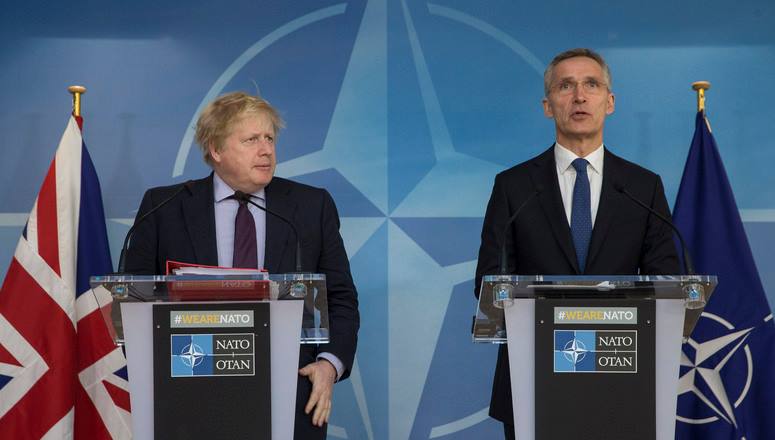Nato must improve defences against a 'more aggressive' Russia, says chief
Nato must improve its defensive capabilities and willingness to act in the wake of increasingly aggressive and unpredictable actions by Russia, the head of the transatlantic alliance said in a German newspaper interview published on Sunday.
The Nato secretary general, Jens Stoltenberg, said he expected the German chancellor, Angela Merkel, and other Nato leaders to revamp their approach at the next Nato summit this summer, given a risk that Russia could gradually give more weight to nuclear weapons in its doctrine, exercises and new military capabilities. “I think Chancellor Merkel and her colleagues will face new decisions at the Natosummit in July in Brussels. We must be alert and resolute,” Stoltenberg was quoted saying by Welt am Sonntag.
The Nato leader last week accused Russia of trying to destabilise the west with new nuclear weapons, cyber attacks and covert action, including the poisoning of a Russian former double agent and his daughter in the British town of Salisbury. “We can always do more and must reflect on that now. Salisbury follows, by all appearances, a pattern we’ve observed for some years – Russia is becoming more unpredictable and more aggressive,” he said.
Russia denies any involvement and says it is the US-led transatlantic alliance that is a risk to peace in Europe.“Russia must not miscalculate,” Stoltenberg told the newspaper. “We are always ready to respond when an ally is attacked militarily. We want credible deterrence. We don’t want any war. Our goal is de-escalation.“
Stoltenberg said hybrid warfare could be added to the agenda of the next Nato-Russia council, a forum that brings together Nato ambassadors and Russia’s top diplomat to the alliance, despite the suspension of joint exercises and peacekeeping operations.
“Hybrid warfare is a possible topic for the Nato-Russia council. We are now preparing the next meeting, so I don’t want to say too much,” he told the newspaper, referring to increased use of “hybrid tactics” such as soldiers without insignia. “It’s important that we sit together at the table and speak to each other,” he said, urging Russia to abide by nuclear arms control treaties.
Stoltenberg listed as evidence of Russia’s threat its 2014 annexation of Crimea, support for separatists in Ukraine, military presence in Moldova and Georgia, meddling in western elections and involvement in the war in Syria.
